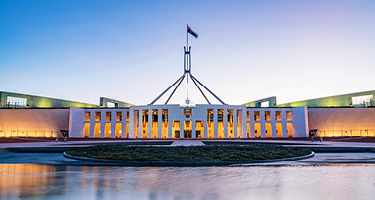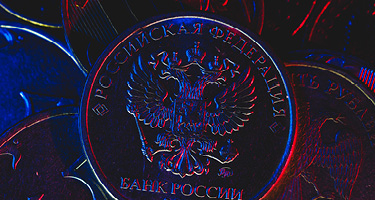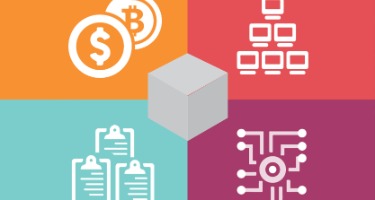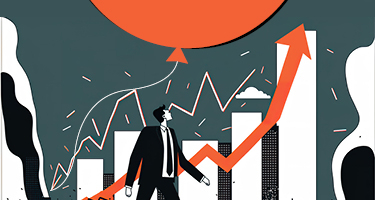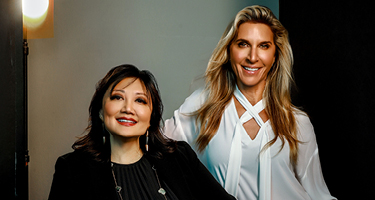It is a truism bordering on cliché that the COVID-19 pandemic has altered nearly every facet of human life in the last 18 months—some monumentally, others more modestly. All the while, too, Americans stood witness to mounting political and social unrest, as well as the implosion and, later, fitful recovery of the economy.
This economic shock forced uncountable numbers of small businesses to close, many for good, and large companies of all stripes laid off millions of workers. Markets initially plummeted. “It felt reminiscent of 2008, but there was a life-or-death component to it,” Keith Buchanan, senior portfolio manager at Globalt Investments, told NBC News. “The world was shutting down, and there was no playbook.” From this unprecedented turmoil, though, emerged an anomaly nearly as confusing as the coronavirus itself: widespread interest in cryptocurrencies.
The crypto boom of the past year-plus has been hailed by a diverse array of speculators—Tesla and SpaceX founder Elon Musk, most notably, but also boxing legend Mike Tyson, Oscar-winning Goop doyenne Gwyneth Paltrow, and uncountable smaller fry with government stimulus checks burning a hole in their sweatpants. Cryptocurrency is by no means a new phenomenon, though: Bitcoin, the best-known and (usually) most valuable example, was created in 2009.
From this unprecedented turmoil, though, emerged an anomaly nearly as confusing as the coronavirus itself: widespread interest in cryptocurrencies.
Broadly speaking, crypto is digital money that can be easily transferred from person to person via the blockchain, the technology that undergirds the whole system: an immutable ledger that precisely (and transparently) records each transaction to ensure the security and integrity of the exchange. What sets crypto apart from traditional paper money is that it’s decentralized, untaxed, and requires no third party (a bank, most obviously) to hold or move funds. It’s a true global currency with none of the guardrails that have been painstakingly erected over centuries to manage the fiat money issued by governments everywhere.
The animating principle with all crypto is removal of the middleman—indeed, of all middlemen. That feature is at once crypto’s promise, and its biggest problem.
What unsettles crypto critics is the notion that Bitcoin, and other popular currencies such as Ethereum and LiteCoin, pose a threat not only to banking systems worldwide but also to the way we interact with money every day. Were cryptocurrencies ever to render paper money obsolete, it could irrevocably alter global exchange rates, fiscal and monetary policy worldwide, and the very idea of credit itself.
Of late, as the world begins to emerge from (one hopes) the worst of the pandemic, cryptocurrencies are having a moment. Companies including Japan’s GMO Internet Group and OpenWeb, a platform that helps sites manage their reader comments, have begun to offer their workers a choice: Stick to the status quo and get compensated as you always have, or take your pay in cryptocurrency. (The latter would constitute an enormous bet, as one of crypto’s defining features is its extraordinary volatility. Bitcoin, which sold for just $8 in 2012, hit nearly $62,000 this April and even after a recent slump was around $35,000 as of press time.)
The possibility of enormous profits fast—“get rich quick,” let’s call it—is catnip for speculators with a high tolerance for risk. The blockchain technology that powers it all offers not only frictionless exchange but also anonymity. Unlike at a traditional bank, which might deny someone an account or a loan due to their poor credit, crypto is available to anyone with the means to purchase it.
The pros come tightly bound with cons. Any investment is risky, whether you’re taking a sizeable stake in an emerging small business or buying stock in an established company. That’s true in spades for crypto, which can yield immense profits and enormous losses in equal measure— and quickly. It’s an impossible market to predict, and one’s success or failure in crypto investing is pretty much solely a matter of timing—an alarming degree of uncertainty for many, perhaps most, investors. For several reasons, too— the anonymity crypto offers and the general public’s limited understanding of how it all works chief among them— the market for such currencies is rife with hackers and scammers looking to take advantage of the naivete of the casual enthusiast. In early June, the Federal Trade Commission reported that consumers lost close to $82 million in crypto frauds in the fourth quarter of 2020 and the first quarter of 2021, more than 10 times the figure from the same six-month period a year earlier.
Another source of criticism is that crypto is simply terrible for the environment. “Crypto mining,” the process of creating new coins and entering them into circulation, involves a large number of “miners” who, in essence, compete with one another to solve complex mathematical algorithms. This requires enormous amounts of electricity to run the powerful servers needed to perform such complicated tasks. How much? The annual carbon footprint generated by Bitcoin mining, according to Digiconomist’s Energy Consumption Index, is equivalent to that of New Zealand.
The pandemic may have accelerated crypto’s journey into the mainstream, but it was inexorably heading there regardless. “Bitcoin 2021,” a two-day jamboree held in Miami in early June, attracted some 12,000 people to learn, network, and party during an event that came off as an oddball combination of trade show, Comic-Con, and Burning Man. On June 8, meanwhile, El Salvador became the first country to officially deem Bitcoin legal tender, meaning Salvadorans so inclined can use it to pay for goods and services at businesses throughout the country—or to pay their taxes.
The hurdles cryptocurrencies must get over are legion—national governments, El Salvador’s notwithstanding, are wary of ceding any power over their financial systems and will no doubt have much to say about such currencies’ trajectory in the years ahead—but the momentum behind this virtual, yet unquestionably significant, means of exchange is undeniable. Will you be willing to switch to a crypto-dominated financial future? In the end, the decision might not be yours to make.







